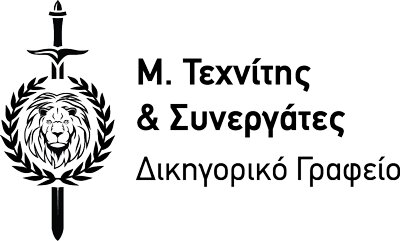Best Communications & Media Law Lawyers in Rhodes
Share your needs with us, get contacted by law firms.
Free. Takes 2 min.
List of the best lawyers in Rhodes, Greece
About Communications & Media Law in Rhodes, Greece
Communications and Media Law in Rhodes, Greece, is part of the broader Greek legal framework that governs how information is transmitted, shared, and regulated through various media platforms and technologies. This field of law addresses issues arising from television, radio, print media, advertising, telecommunication networks, and digital communication outlets, including social media and online publications. As an island with a vibrant tourism sector and multicultural influence, Rhodes sees these laws applied frequently to ensure compliance, protect rights, and support public interest standards.
Why You May Need a Lawyer
There are many circumstances in which you may benefit from consulting a Communications and Media Law specialist in Rhodes. Common scenarios include:
- Facing defamation, libel, or slander claims in print or online media
- Broadcasting or publishing content that may require compliance with intellectual property laws or licensing regulations
- Negotiating advertising contracts or sponsorship agreements
- Being involved in disputes over freedom of expression or right to privacy concerns
- Dealing with regulatory authorities over breaches of telecommunications or media regulations
- Setting up a new media company or online platform
- Responding to takedown notices or content removal requests
- Handling allegations of non-compliance with EU digital and telecommunications directives
Local Laws Overview
Rhodes, as a region of Greece, is subject to national Greek legislation and the relevant European Union directives. Key legal aspects include:
- Defamation and Libel: Greek law criminalizes defamation, but also protects the right to free expression within responsible boundaries.
- Media Regulation: The National Council for Radio and Television licenses and oversees broadcast content, ensuring it meets ethical and legal standards.
- Intellectual Property: Copyright violations and unauthorized use of content can result in civil or criminal penalties.
- Data Protection: Personal data usage in media is governed by the Greek Data Protection Authority in line with the EU General Data Protection Regulation (GDPR).
- Advertising Standards: There are strict rules against misleading advertisements and requirements for transparent marketing practices.
- Telecommunications Law: Operators are regulated for licensing, tariffs, and service quality under oversight from the Hellenic Telecommunications and Post Commission (EETT).
- Digital Content: Online publishers and influencers must comply with laws concerning digital copyright, platform liability, and consumer protection.
Frequently Asked Questions
What is Communications and Media Law?
Communications and Media Law covers the rules and regulations relating to the distribution, content, and usage of information through various media channels, including print, online, broadcast, and telecommunication networks.
Is freedom of speech protected in Greece?
Yes, the Greek Constitution guarantees freedom of speech, but this right is balanced with laws that protect individuals from defamation, hate speech, and threats to public order.
Can I be sued for something I post online in Rhodes?
Yes, you can face legal consequences under Greek law for online activities such as defamation, publishing false information, copyright infringement, or violating privacy rights.
Who regulates media outlets in Rhodes?
The National Council for Radio and Television regulates broadcast media, while print and online media activities are monitored under general Greek and EU law, along with oversight by other governmental agencies.
What are the risks of using copyrighted material in the media?
Using copyrighted material without permission can lead to cease-and-desist letters, civil lawsuits, and, in some cases, criminal charges with fines or imprisonment.
How is personal data protected in media and communications?
Personal data must be processed fairly, lawfully, and transparently, as outlined by the GDPR and Greek law. Consent and data security measures are necessary when handling personal information in any media.
What are my rights if I am falsely portrayed in the media?
You may have the right to request a correction, retraction, or damages for harm caused by untrue or misleading publications, depending on the circumstances and damages incurred.
Do I need a license to start a radio or TV station in Rhodes?
Yes, operating a radio or TV broadcast requires a license from the National Council for Radio and Television with specific conditions and application procedures.
Are there special requirements for advertising to tourists in Rhodes?
Advertising aimed at tourists must comply with general consumer protection laws and standards for truthfulness, transparency, and data usage, especially for digital marketing campaigns.
What should I do if I receive a legal complaint related to media content?
It is important to consult a lawyer experienced in Communications and Media Law to assess the situation, respond appropriately, and protect your legal rights.
Additional Resources
If you need more information or assistance, the following resources and organizations can be helpful:
- National Council for Radio and Television (ESR): Regulates broadcast content in Greece
- Hellenic Telecommunications and Post Commission (EETT): Oversees telecommunication services and compliance
- Greek Data Protection Authority (DPA): Handles personal data protection issues
- Greek Ministry of Digital Governance: Offers guidance on digital and media policy
- Local bar associations in Rhodes: Can refer you to lawyers specializing in media and communications
- European Union Information Portals: Provide updates on EU media regulations relevant in Greece
Next Steps
If you believe you need legal advice regarding Communications and Media Law in Rhodes, it is wise to take the following actions:
- Document the issue clearly, including all relevant communications and materials
- Identify whether the issue is urgent or may involve formal complaints or deadlines
- Contact a qualified local lawyer with experience in Communications and Media Law
- Prepare your questions and any supporting documentation before your appointment
- Consider whether your case may also involve European Union law or cross-border aspects
- Follow your lawyer’s advice closely and maintain open communication throughout the process
Lawzana helps you find the best lawyers and law firms in Rhodes through a curated and pre-screened list of qualified legal professionals. Our platform offers rankings and detailed profiles of attorneys and law firms, allowing you to compare based on practice areas, including Communications & Media Law, experience, and client feedback.
Each profile includes a description of the firm's areas of practice, client reviews, team members and partners, year of establishment, spoken languages, office locations, contact information, social media presence, and any published articles or resources. Most firms on our platform speak English and are experienced in both local and international legal matters.
Get a quote from top-rated law firms in Rhodes, Greece — quickly, securely, and without unnecessary hassle.
Disclaimer:
The information provided on this page is for general informational purposes only and does not constitute legal advice. While we strive to ensure the accuracy and relevance of the content, legal information may change over time, and interpretations of the law can vary. You should always consult with a qualified legal professional for advice specific to your situation.
We disclaim all liability for actions taken or not taken based on the content of this page. If you believe any information is incorrect or outdated, please contact us, and we will review and update it where appropriate.










